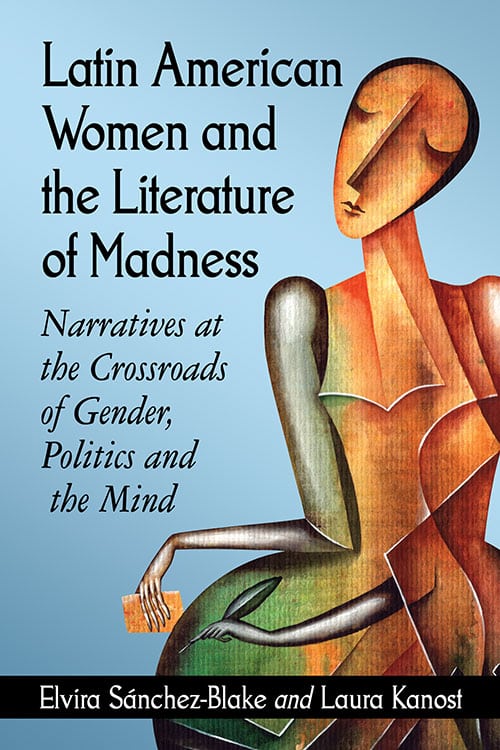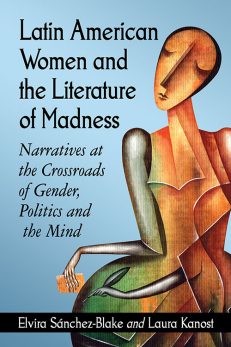Subtotal: $23.99
Latin American Women and the Literature of Madness
Narratives at the Crossroads of Gender, Politics and the Mind
$39.95
In stock
About the Book
At the turn of the millennium, narrative works by Latin American women writers have represented madness within contexts of sociopolitical strife and gender inequality. This book explores contemporary Latin American realities through madness narratives by prominent women authors, including Cristina Peri Rossi (Uruguay), Lya Luft (Brazil), Diamela Eltit (Chile), Cristina Rivera Garza (Mexico), Laura Restrepo (Colombia) and Irene Vilar (Puerto Rico). Close reading of these works reveals a pattern of literary techniques—a “poetics of madness”—employed by the writers to represent conditions that defy language, make sociopolitical crises tangible and register cultural perceptions of mental illness through literature.
About the Author(s)
Bibliographic Details
Elvira Sánchez-Blake and Laura Kanost
Format: softcover (6 x 9)
Pages: 188
Bibliographic Info: notes, bibliography, index
Copyright Date: 2015
pISBN: 978-0-7864-7485-1
eISBN: 978-1-4766-2110-4
Imprint: McFarland
Table of Contents
Acknowledgments ix
Preface 1
Introduction 3
One. A Dialogical Journey: Cristina Peri Rossi’s La nave de los locos (Elvira Sánchez-Blake) 29
Two. Homesickness: Lya Luft’s Exílio (Laura Kanost) 52
Three. Dissonance on Display: Diamela Eltit and Paz Errázuriz’s El infarto del alma (Laura Kanost) 69
Four. See the World Through My Lens: Cristina Rivera Garza’s Nadie me verá llorar (Elvira Sánchez-Blake) 82
Five. A Poetics of Madness: Laura Restrepo’s Delirio (Elvira Sánchez-Blake) 102
Six. Literary Agency: Irene Vilar’s Life-Writing (Laura Kanost) 122
Conclusions 144
Chapter Notes 157
Bibliography 163
Index 171
Book Reviews & Awards
- “Valuable…essential academic resource”—Hispania
- “In-depth study…impressive exploration of contemporary literary representations of madness in Latin American narratives…essential”—Letras Femininas
- “An important contribution to the field of Latin American literary and women’s studies…The most outstanding contribution of this book is thorough and clear review of theoretical and critical texts regarding madness…of the utmost importance.”—Tulsa Studies in Women’s Literature.

 Asian Refugees in America
Asian Refugees in America 




